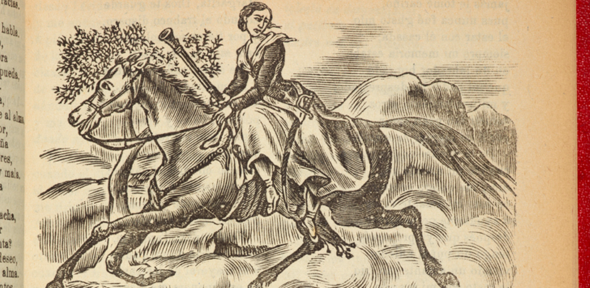
Medieval and Early Modern Pathway
Pathway Structure
The pathway is aimed at students registered in the MPhil in Literature, Culture and Thought (LCT) who wish to specialize in subjects linked to Medieval and/or Early Modern studies. The course offers tailored training to students working in this field, providing theoretical and practical tools to read, understand and work on pre-modern sources. The pathway is a flexible structure that can be adjusted to particular needs and interests offering a wide range of approaches to a variety of texts and historical contexts. This pathway is particularly suited to students wishing to pursue their postgraduate studies further and work on a PhD in Medieval and/or Early Modern studies.
Core Course Lectures
Students will attend the Core Course Lectures of the LCT programme.
Core Course Seminars:
Students must choose 2 seminars.
Students should study at least one of the following seminars, but if they wish they can also choose one of the other seminars offered in the ELAC programme.
- Rhetoric and Poetics
- Paleography and editorial techniques
Modules (please note that these modules are offered subject to availability and student interest each year)
Students will choose 2 of the the following modules:
- Cultures of the Renaissance
- Senses of the Text in Medieval France
- Searching for Happiness
- Body, Gesture, Emotion
- Gesture, Perception, Event
- Women and Writing in Italy
- The Rus’ legacy and pre-modern identities in Russia, Ukraine and Belarus
- Mimesis and the Middle Ages: The Legacy of Erich Auerbach
Assessment
Students will write 1 essay for the Core Course (1st term) on a specific topic related to one of the seminars followed. Essays will be 4,500 words long. In the case of the Paleography and editorial techniques seminar, students will be assessed with a 4,500-word essay, of which around 1,500 will be the text edited or transcribed and around 3,000 the introductory study, footnotes and-or critical apparatus. In the second term, students will write 2 essays based on material related to the modules followed, and a 15,000-word dissertation in the third term.
Teaching Staff
French
Mary Franklin-Brown Liz Guild Timothy Chesters Mark Darlow Emma Gilby Miranda Griffin Nicholas Hammond John Leigh Jenny Mander Michael Moriarty
Spanish and Portuguese
Rodrigo Cacho Louise Haywood Ioanna Sitaridou
German and Dutch
Italian
Slavonic Studies
Theoretical and Applied Linguistics
Paleography and the History of the Book
Anne Cobby Louise Haywood Mary-Franklin Brown
For more information on the Pathway, please contact Rodrigo Cacho


